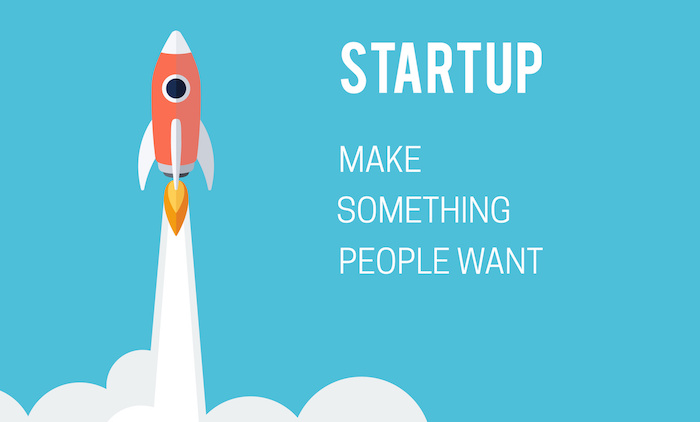
What to do after Engineering?
Are you currently in third year of Engineering and thinking about what to do after graduation? Don’t stress about it because lot of your peers are facing the same dilemma and are searching for answers. Most of you will follow the herd mentality rather than focussing on what you really want to pursue. You will fall in the trap of FOMO and as a result will enroll for GRE or CAT classes just to answer the question, “What’s your future plans?”. This approach will never get you to what you really want to do in life. So, here at Master Bridge, we will try to explain you what are the different options you have after completing Bachelor’s degree in Engineering and also focus on the Pros/Cons of each option from our experience in the tech industry as well as higher education.
Option 1: Getting a Job in India

Engineering is the most opted coursework in India. After graduation many students look out for job opportunities in India. Some join MNCs, others join startups. College placements are very competitive and only a few get good companies with decent salary while others tend to join mass recruiters and generally do not get opportunity to work in their core field. We have seen an EXTC graduate working for TCS on Android Development and a student with UI/UX background made to work on C++.
If you are choosing this option, we would suggest you to work hard and plan for good companies like J.P. Morgan, Morgan Stanley, Oracle, MindTree etc. The intake is usually less but one gets it easily if they’ve good technical skills backed with projects.
Pros :
- Working right after college can get you additional time and experience to dwell over your career choices.
- You can save some amount and reduce financial burden if you are planning for higher education degree.
Cons :
- Pay hike is very less even if you switch companies.
- Hectic working hours which can extend to more than 12 hours a day.
- For startup employees, job security is a concern.
Average Salary : 5 Lakhs per annum
Fact : Every year millions of Indians graduate and only 8% students get to work in their core fields.
Option 2: Pursuing MS degree abroad

After graduation a lot of students plan for their Master’s degree abroad. For getting admitted into top universities you need to start your GRE and TOEFL/IELTS preparations from the third year itself. Ideal score to get into a reputed university for GRE is 310 and above while for TOEFL or IELTS is above 100 or above 7 band respectively. You should be done with these exams before your seventh semester and start application process.
Ideal timeline:
| 5th Semester | 6th Semester | 7th Semester | 8th Semester |
|---|---|---|---|
| GRE Preparations | GRE exams | Documentation (SOP, LORs, Resume) | Visa Preparations |
| TOEFL/IELTS Preparations/td> | TOEFL/IELTS Exams | Applications | Technical Skill Development |
Steps for application process depends on which country you are targeting and also on the university. For example, some university requires three letter of recommendations while some require four.
Pros :
- Education is focuses on practical knowledge rather than theoretical knowledge.
- Once graduated, starting salaries are high due to lack of skilled labor.
- Many students have myth about financial affordability but if you do the math correctly, you can repay the loan in 1-2 years easily provided you go to decent enough school and work hard to get a good internship/job.
- Besides the exposure to a foreign land, opportunities and learning to be independent are something that will make you a better person and professional in the long run.
Cons :
- Tuition fees ($10,000 – 25,000 per semester) and cost of living ($700 – 1100) is expensive and varies depending upon the location.
- To get a job in foreign land, you need a visa sponsorship (H1B) from your employer.
- Students often face visa issues due to constantly changing government policies.
Average Salary : $65000 per annum
Option 3: Pursuing Master’s in Technology (Mtech) degree in India

Engineering students can pursue Master’s degree once they complete their engineering. You can opt to your favorite field of study you crave to expertise in, but make sure, you need to prepare well for the entrance exams to get into a good college. GATE (Graduate Aptitude Test in Engineering) is a national exam conducted in India, if you crack this exam you can certainly get admission in IITs, IISC or NITs and many others.
Pros :
- MTech is cheaper than Master’s degree abroad ($3,000 – $4,000 per year) but it can still make you eligible for placements in big companies like Amazon, Google, Facebook, etc.
- Having completed your Bachelor’s degree from a low-tier college if you managed to cracked the GATE entrance exam and get into IIT/NIT/BITs, it will drastically increase your employability.
- Starting salary and job position will be at a much higher scale as compared to Bachelor’s degree.
Cons :
- Education quality in India is not good enough and the same is true for MTech. Therefore, make sure you just aim for the best institutions like IIT/NIT/BITs.
- Research opportunities are generally less due to lack of funding.
Average Salary : 11 Lakhs per annum
Option 4: Pursuing MBA abroad

An MBA abroad after engineering makes more sense when you have work experience of about 4 to 5 years. That’s the average experience for American MBA programs. In European MBA program, it’s even higher (6 to 8 years).
For engineers with a sound technical background, a job in their own technical specialization seems like the perfect fit. For instance, a computer engineer would most probably be happy to work in top IT companies such as Google, Facebook, or Infosys.
However, mid-career, when the software professional has leveraged his or her skills to maximize learning as well as career growth, there can come a time when the career graph plateaus. This is because, for any professional to climb further up, the professional would need to change path to management of such technical skills (Managers, Directors, CEOs, etc.).
Pros :
- Good salary and great opportunities
- Great course curriculum
- Experience a different culture
Cons :
- It doesn’t matter whether you are pursuing your MBA degree from America or European countries, cost will always be an issue as foreign countries have expensive healthcare and high rent expenses ($30,000 – 50,000 per semester)
- Visa restrictions in most of the countries
Average Salary : $80000 per annum
Option 5: Pursuing MBA in India

The numbers of students who are pursuing MBA after Engineering (B.Tech / B.E.) is increasing every year due to perfect combination of technical and management expertise. Technology plays an important role in transforming our life and business, and, on the other hand, Management skills are required to sustain any business, thus having both technical as well as managerial skills can help you gain a lot of job opportunities. Whether you want to work in a technology company or start your own venture, having these skills can take you a long way.
Pros :
- Plays pivotal role in opening up alternate career paths
- Can help getting managerial job roles
Cons :
- MBA placements aren’t too different from the potluck model you experienced during engineering placements.
- MBA in India is as costly as a Master’s degree abroad (unless you get into government funded MBA colleges)
- It is very competitive and with reservation system in place it is very difficult to get into Tier-1 colleges.
Average Salary : 8 Lakhs per annum
Option 6: Entrepreneurship

This is the best option for you when you have a unique business idea and can arrange money to invest in your business. Entrepreneurship is the new thing everyone is doing and you should also do it too. But do not get carried away by the idea of becoming popular and rich. It may happen but do consider this as learning opportunity.
Many who do not have wealthy family background should join some job so that they can earn money to invest and gather experience about how things work in corporate world. Do not start a company just to impress someone or to be rich in very less time. Every action requires an appropriate time to give result. Give time to your action.
Pros :
- You are your own boss
- Your income has the capacity to be greater than what it is/was working for
- someone else
- Personal gratification and satisfaction
You have the ability to succeed/fail according to your own merits
Cons :
- You have to commit a lot of time
- Financial risk and income uncertainty
Annual Salary : 0 to Forbes 30 under 30!







